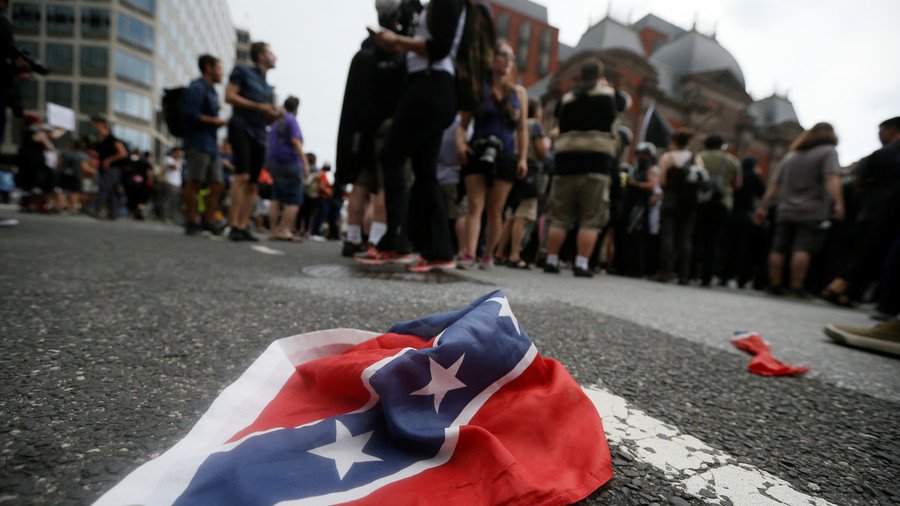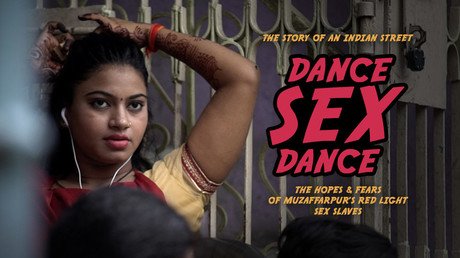Tired of the political divide in America? Don’t worry, it’s going to get much worse

Politically and culturally, the gulf between left and right, Democrat and Republican, seems to be widening day by day. According to one new study, you ain’t seen nothing yet.
Political polarization is even worse than most people think, argues a new Michigan State University study. Rather than being a new, Donald Trump-era phenomenon, as many in the media seem to think, the researchers found that today’s hyper-polarized political landscape is a problem that’s been growing for almost five decades.
“What I’ve found is that polarization has been steadily getting worse since the early 1970s,” said researcher Zachary Neal. “Today, we’ve hit the ceiling on polarization. At these levels, it will be difficult to make any progress on social or economic policies.”
Rather than resulting from loose relations between the left and the right, today’s polarization comes from strong but extremely hostile relations between both sides, the researchers argue.
Supreme Court nominee Brett Kavanaugh’s bitter confirmation fight is a prime example of this intense hatred between political figures. Washington DC used to be known as a place where rival politicians would duke it out in Congress, then come together in the city’s bars and eateries to hash out bipartisan solutions to the problems of the day, bound by their shared duty as public servants.
Now, battle lines are drawn. To Democrats, Republicans hate women and want to railroad Kavanaugh into the court to continue their assault on women, gays, minorities, and anyone who isn’t a straight white male. To Republicans, Democrats will tell any lie to block the process, stalling and obstructing until they can get a shot at retaking control of the Senate.
The MSU researchers’ study was confined to Capitol Hill. It evaluated polarization by analyzing how often politicians from each party co-sponsored legislation. It found that while the average Representative or Senator reads thousands of bills each year, they co-sponsor only around 200.
Outside Washington, the general trend is similar. After White House Press Secretary Sarah Sanders and her dinner party were booted out of a Virginia restaurant for her politics this summer, the divide between left and right played out in the streets, with protesters ambushing Trump officials in restaurants, ‘Antifa’ protesters doxxing thousands of Immigration and Customs Enforcement officials, and celebrities calling for the kidnap and torture of Trump’s family. All of this prompted one Tennessee law professor to declare that a “new Civil War” is “well underway.”
The professor, Glenn Harlan Reynolds, wrote that part of the problem now is that Americans don’t feel social ties which transcend politics. It’s all us vs. them — and nothing in between. He argues that churches, fraternal organizations and neighborhoods used to cross political lines, but that this America has “shrunk and decayed” and people are increasingly finding their identity only in politics.
In the age of Trump, if that identity isn’t expressed on the streets, it’s expressed in a series of increasingly segregated online echo chambers. On Reddit, the second and third most popular discussion boards are r/politics and r/The_Donald. On r/politics, users regurgitate liberal Trump-hate and almost exclusively discuss their mutual hatred for his administration, policies, appearance, etc. The_Donald, on the other hand, is a 24/7 Trump rally, where every policy is celebrated and the president can do no wrong.
Hypocrisy much? Left & right slam Comey’s ‘shot clock’ oped about Kavanaugh FBI probe https://t.co/JyCvAUZFji
— RT (@RT_com) October 1, 2018
Where’s all of this heading? Neal suggests electing more centrists to Congress. To him, politicians willing to cross the aisle – as Arizona Senator Jeff Flake (R) did after Kavanaugh’s confirmation was moved forward to a Senate vote last week – could get things working again.
The problem with this, however, is that polarized voters won’t vote for centrist candidates. Republican voters enraged by Democrat efforts to derail Kavanaugh’s nomination won’t vote for a Senator who might cave to Democrat pressure, as Flake appeared to. Likewise, the Democratic party’s recent slide to the left also means that these voters might not be too enthusiastic about backing a less militant, suit-and-tie Joe Biden or Hillary Clinton candidate again.
What kind of policies can possibly be enacted in this climate? Neal points to the Affordable Care Act as an example of what’s in store. With the narrowest of majorities, Democrats squeezed ‘Obamacare’ through in 2010, with all 178 House Republicans voting against the bill. Once Republicans regained a slim majority in the House of Representatives in 2011, they instantly began ongoing efforts to repeal it.
“This study raises new questions about the future of Congressional politics,” Neal said. “In truth, the only thing that is bi-partisan in Congress is the trend toward greater polarization.”
THE ONLY REASON TO VOTE FOR A DEMOCRAT IS IF YOU’RE TIRED OF WINNING!
— Donald J. Trump (@realDonaldTrump) October 2, 2018
Think your friends would be interested? Share this story!















